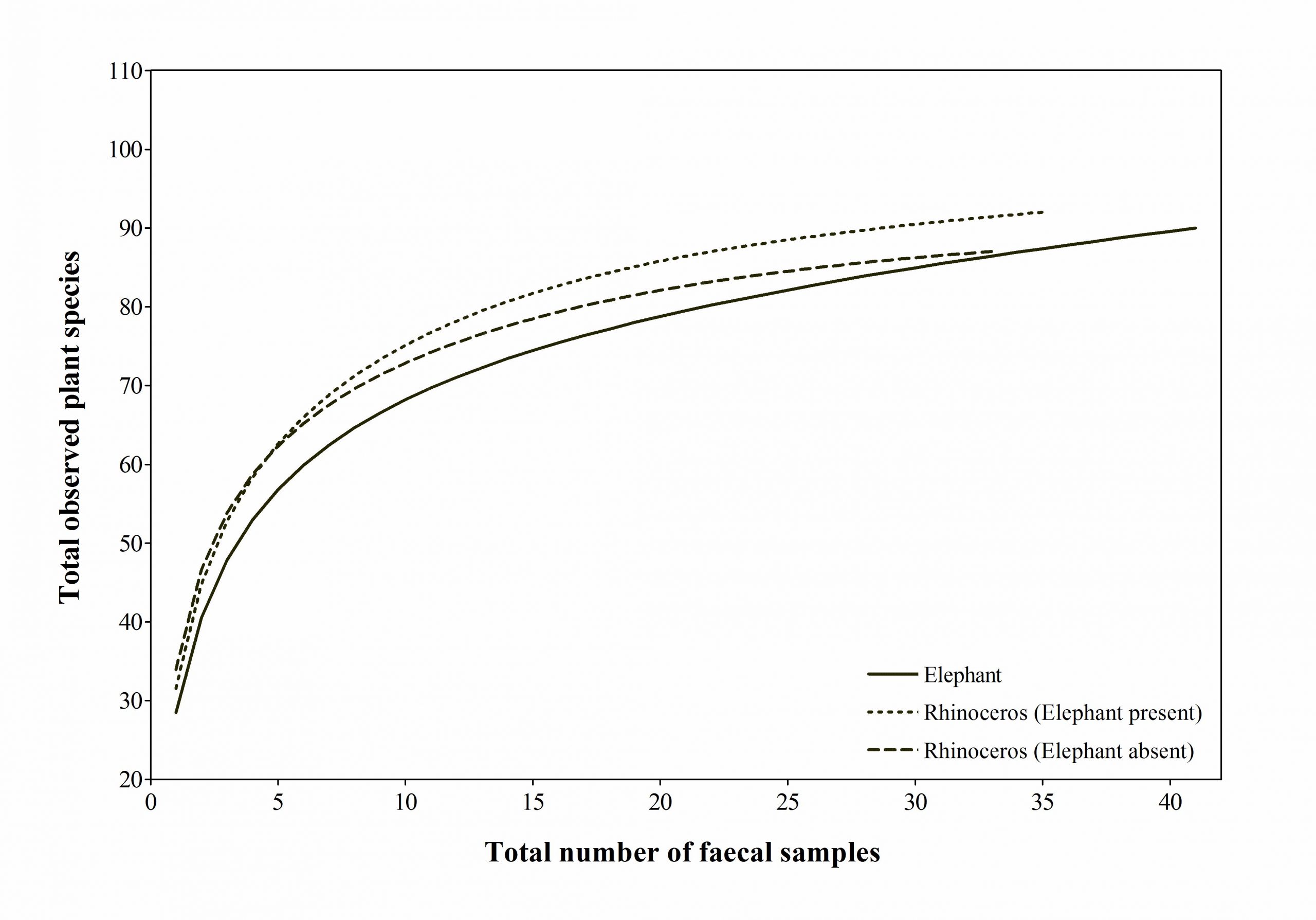The Poop Will Tell Us: Do Elephants and Rhinos Compete for Food?
A recent study of the two animals in Addo Elephant National Park, called “Shift in Black Rhinoceros Diet in the Presence of Elephant: Evidence for Competition?” suggests the answer is yes.
Scientists interested in helping endangered species like the African elephant and the black rhinoceros would like to know whether these animals compete for resources in the wild, as such food contests could impact the population and health of both species. Unfortunately, our favorite rough-skinned big guys have IUCN statuses of vulnerable and critically endangered, respectively, so competition for food between them may present a bit of an ecological puzzle.
To gain evidence of food competition, researchers from Australia and the Centre for African Conservation Ecology took a close look at elephant and rhino poop (no, seriously) across different seasons to identify the types of plants each herbivore was eating. Poop collecting was performed at times of the year when rhinos and elephants ate in the same region, and then again when only rhinos grazed in the area (in the absence of elephants). Variations in the plant types found in the feces were counted as indicators of dietary differences.
While it’s been shown that the presence of elephants can help some herbivores with habitat and food access, limited studies have been conducted on how the elephants’ foraging behavior may affect that of specifically megaherbivores. The authors state that there is clear evidence that elephants hog and monopolize food, a behavior that they suspected would affect the diets of other large herbivores. Indeed, the results of this study revealed that resource use was clearly separated by season, and rhinos munched on different grasses depending on whether or not the elephants were present. Without elephants around, rhinos ate more diverse plants, like woody shrubs and succulents, but in their presence, rhinos restrained themselves and consumed more grasses. This may not seem like a big deal, but rhinos are known to be strict browsers (read: picky about their food choices), so this dietary difference discovery was surprising to researchers.
The authors go on to suggest that elephants living at high population densities in certain regions may significantly affect the foraging opportunities of other grazers, and these close living quarters may have long-term effects on the overall fitness of the other animals. These behaviors may have particularly important consequences in smaller or fenced-in wildlife parks, where populations tend to grow at the same time that food availability goes down.
Citation: Landman M, Schoeman DS, Kerley GIH (2013) Shift in Black Rhinoceros Diet in the Presence of Elephant: Evidence for Competition? PLoS ONE 8(7): e69771. doi:10.1371/journal.pone.0069771
Image Credits: African wildlife photo by Chris Eason (Mister E); plot from article


